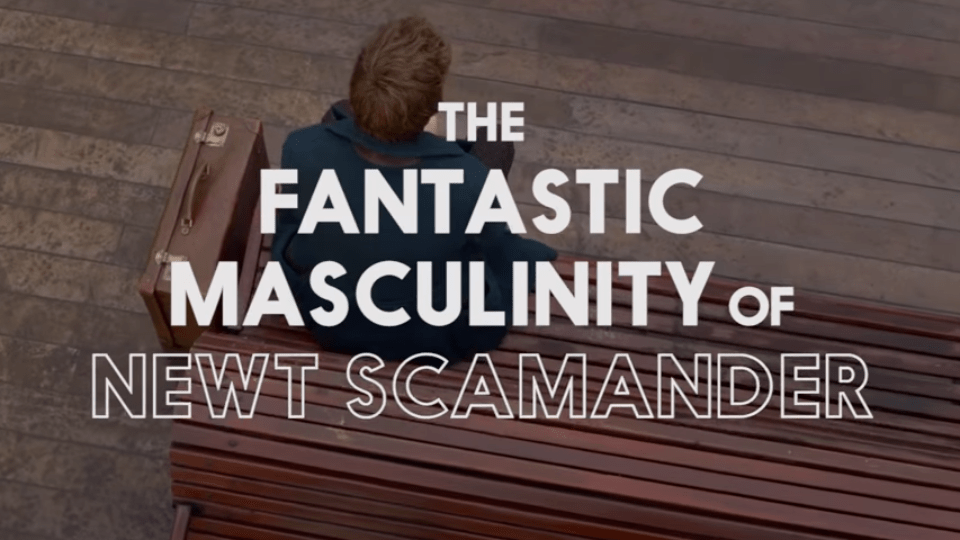We’ve posted before about some of the ways that Fantastic Beasts and Where to Find Them failed in its representation, but YouTuber Pop Culture Detective (Jonathan McIntosh) recently pointed out one of the things this film got right: its depiction of masculinity. The above video, titled “The Fantastic Masculinity of Newt Scamander,” explores how Newt’s unconventionally “quiet, vulnerable, yet confident” masculinity played out in both the movie itself and the wider culture.
McIntosh begins by pointing out that Newt is “the kind of character typically relegated to sidekick status.” While we’ve seen gentler, quirkier male characters before, they are rarely the lead – particularly when it comes to the fantasy-adventure genre. Even though Newt has a special gift for “studying, nurturing, and protecting” magical creatures, that gift doesn’t come wrapped in the typical trappings of a hero.
“This not a Doctor Doolittle situation,” argues McIntosh. “Newt’s bond with, and affinity for, animals is not supernatural in nature, even though that wouldn’t be out of place in this universe. Instead, he simply pays attention to them and their needs when others don’t…Newt’s truly special gift is not his magic. It’s his empathy.”
McIntosh then compares Newt to the “autonomous, brazen” men we usually find in fantasy-adventure films – including the Wizarding World’s most famous hero, Harry Potter. A “chosen one” sorted into Gryffindor, “the house known for daring, nerve, [and] chivalry,” Harry is a very typical hero. Newt, on the other hand, is a Hufflepuff, sorted into the house known for “friendship, hard work, and humility.” This is reflected in his character. “[Newt is] sincere, nurturing, emotional, and sensitive,” summarizes McIntosh. “And critically, that sensitivity is framed as a strength, rather than a weakness.” (5:20)
The video also addresses Fantastic Beasts‘ portrayal of Newt’s social anxieties. Film characters who exhibit social awkwardness or autism-spectrum behaviors are, argues McIntosh, usually treated as one of three types: Tormented Genius, Mad Scientist, or Sherlock Holmes. Newt, on the other hand, “isn’t too lost in his own mind or his own eccentricities to care about or empathize with other people. In fact, quite the opposite. His sensitivity is where he excels.”
In addition, Newt isn’t saddled with a stigma-enforcing arc, in which he has to become more neurotypical in order to be happy. “Critically, Fantastic Beasts doesn’t frame Newt’s social anxiety as an obstacle he must ultimately overcome in order to be a true hero,” says McIntosh. “The narrative doesn’t require him to toughen up, or learn to be more outgoing. Newt doesn’t fundamentally have to change his way of being, and the people who become his friends are those who interact and engage with him on his terms.”
Do you agree with McIntosh’s analysis of Newt? Are there other fantasy and science fiction films where you appreciated the portrayal of masculinity?
(Featured image via screengrab)
Want more stories like this? Become a subscriber and support the site!
—The Mary Sue has a strict comment policy that forbids, but is not limited to, personal insults toward anyone, hate speech, and trolling.—









Published: Jun 3, 2017 12:30 pm